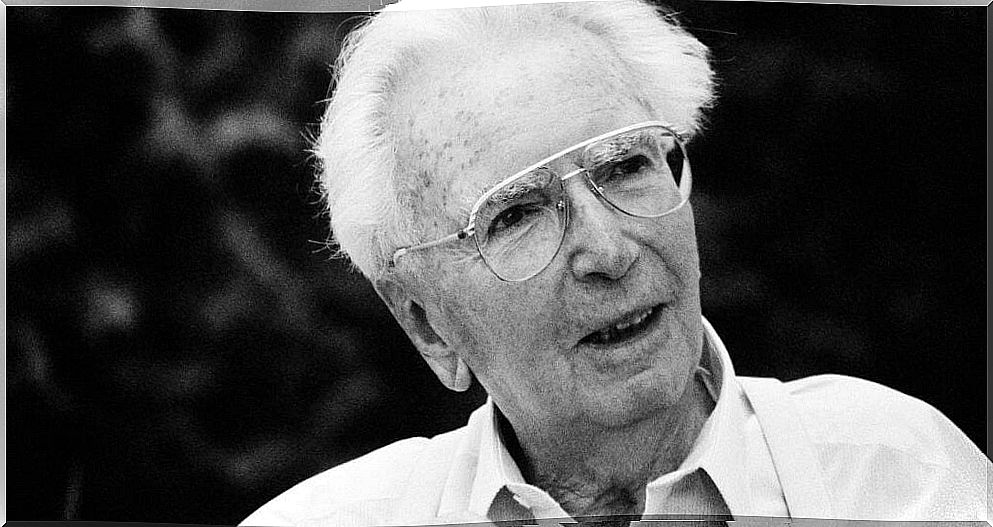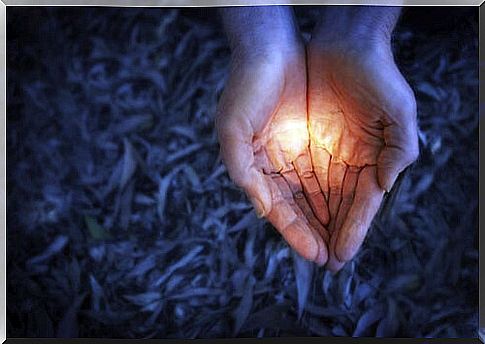Viktor Frankl And His Lessons On Resilience, Always So Necessary

These days, Viktor Frankl and his teachings on resilience are needed more than ever. The famous psychiatrist explained that while he was in the concentration camps, he used to make a mental effort. He envisioned himself in the not-too-distant future, speaking to a large audience explaining how to handle the trauma of war.
That worked for him. It allowed him to find an inner refuge to keep his hope, his psychological strength, safe. He placed a purpose on his horizon and made that goal an anchor to cling to.
He managed to make sense of the inexplicable, wished that the horror and suffering experienced had a vital meaning: learning to teach others to cope with emotional pain.
His lessons and his psychological therapy never go out of style. Thus, and although Viktor Frankl did not get to speak of resilience as such (yes of resistance), we can take his lessons as that substrate from which to understand this concept much better. Let’s go deeper.

Viktor Frankl and his teachings on resilience, a legacy to reflect on
The concept of resilience has its origins in the world of physics and engineering. It is the property that certain materials have when it comes to returning to their original state after having received an impact or a disturbance (it would be similar to the elasticity of rubbers). The field of psychology picked up this term to apply it to its study from the 40s.
It was Norman Garmezy, now a professor emeritus at the University of Minnesota in Minneapolis, one of the first to use this metaphor taken from an actual physical phenomenon.
In his investigations in the world of schizophrenia he discovered something striking. The children of those patients who suffered from this condition did not usually inherit this disease. Moreover, they used to show very resistant, skillful and self-improvement personalities.
The experiences lived in their homes, formed in them what Garmezy defined as “resilient personalities.” On the other hand, and about this same time, Maurice Vanderpol, former president of the Boston Psychoanalytic Society and Institute, could also see that a good part of the survivors of the German concentration camps had this same characteristic. Viktor Frankl was indeed one of those examples.
The type of therapy that he himself devised and applied with his patients had that purpose. Help people give new meaning to their lives, create a more resistant personality with which to find a purpose to move forward. These would be the keys.
Accept reality
It is always a good time to return to Viktor Frankl and his teachings on resilience. Thus, something that we will understand when reading his works and conferences is that nothing is as decisive as accepting the reality that we have to live. In many cases we cannot control what happens. Adversity often has a chaotic component that overwhelms us.
In this context, there is only acceptance. It is of little use for us to obsess over “why”. We must focus on the “how and why”. What can I do to meet the challenge? What is this for, what can I learn from this experience?

Search your own meanings
Viktor Frankl tells in his books that life in the concentration camp was reduced to wondering if he could exchange a cigarette for a bowl of soup. Also, if that sadistic foreman he had to work with from time to time, he would kill him that day or the next.
In the midst of that scenario of permanent anguish where nonsense and horror was constant, he decided to find some mechanism with which to feel motivated to survive.
He wanted to find meaning in everything he saw, felt and suffered. Each of those things was learning, he told himself, and tomorrow he could use it to help other people overcome trauma. That was his purpose and that helped him live. Therefore, in the midst of all difficulties, that should also be our strategy.
Clarify what our purposes are and fight for them. Thus, as Frankl himself explained, ” once we give life meaning, not only do we feel a little better, but we also find the ability to deal with suffering.”
Viktor Frankl and his teachings on resilience: attitude and transformation
Our attitude to life and to our own difficulties is, according to Frankl, what determines our ability to cope with almost anything. Moreover, it is in our power to choose the most appropriate attitude: that of not giving up, that of keeping hope and trusting that our past does not have to determine our future.
Our own attitude and the ability to transform ourselves to handle adversity are part of that legacy of Viktor Frankl and his teachings on resilience. As he himself explained, it is not the context or the circumstances that determine us. What really affects us are our decisions and our thoughts.
Let’s take care of them. Let us keep these ideas in mind and try as much as possible to apply these lessons from the father of logotherapy to our lives.









